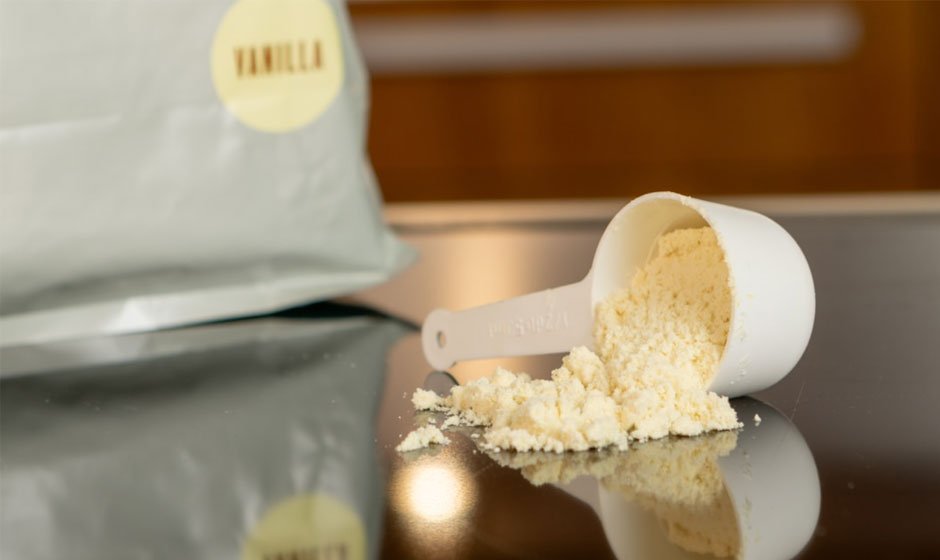How To Choose the Best Organic Protein Powder for Your Health Goals

Finding the right protein supplement for your health and fitness routine can make a significant difference in reaching your goals. Organic protein powders are becoming a staple in the wellness community for those who strive for cleaner eating and sustainable practices. Organic protein powders offer many benefits, whether you are a dedicated athlete, a gym enthusiast, or seeking a better nutrition plan. Below, we will delve into how to select the best organic protein powder tailored to your personal health objectives. Keep reading to learn how to optimize your health journey with the right product.
Evaluating Protein Quality and Amino Acid Profiles 
When assessing the quality of protein powders, one must consider the protein’s biological value and amino acid profile. A high biological value indicates that the protein is easily assimilable and contains all the essential amino acids the body needs. The building blocks of protein the body cannot synthesize independently and must be sourced through diet.
A complete amino acid profile is crucial, particularly for individuals who do not consume animal products. Plant-based organic proteins sometimes need to be combined to ensure a full spectrum of amino acids is present. This is why comparing products and their amino acid completeness is vital for maximizing health and fitness results.
Another aspect of protein quality is digestibility. Organic proteins are often less processed and closer to their natural state, which can improve their digestibility. This is essential for absorption, ensuring that the body can fully utilize the nutrients provided by the protein supplement.
Therefore, when choosing an organic protein powder, it’s necessary to scrutinize the label for information about the protein’s source and availability of all essential amino acids. This can directly impact muscle building, recovery, and overall health results from your protein intake.
Deciphering Labels: Certifications and Ingredient Transparency

Navigating the world of supplements requires attentiveness to labels and certifications that guarantee organic status and product safety. Reliable organic certifications include USDA Organic and Non-GMO Project Verified seals. These confirm that the product meets stringent organic standards and doesn’t contain genetically modified organisms.
In addition to certifications, the ingredient list should be straightforward and free from artificial additives, sweeteners, or preservatives. Transparency is key; a short, recognizable list of ingredients often indicates a minimally processed powder that aligns with health-conscious consumption.
Another element to consider is whether the protein powder contains allergens or gluten. Many users opt for organic protein blends to avoid potential reactions and support digestive health. This scrutiny is of utmost importance for those with dietary restrictions to ensure the protein supplement is safe and aligns with their needs.
Moreover, ingredient transparency extends to sweeteners and flavors included in the protein powder. Look for natural sweeteners like stevia or monk fruit, and avoid those with high amounts of processed sugars or artificial flavorings, which can undermine the health benefits of an organic supplement.
Tailoring Your Protein Choice to Specific Health and Fitness Goals
Every individual’s body and health goals are unique, so choosing a protein powder that aligns with one’s specific targets is crucial. For those aiming to build muscle, seeking a high-protein, organic powder with an extensive amino acid profile is beneficial. Conversely, individuals focused on weight loss might choose a product with additional metabolism-boosting ingredients.
Endurance athletes may require a powder that also features carbohydrates for energy, while those seeking general health improvements should consider a blend rich in vitamins and minerals. Additionally, for environmentally conscious consumers, selecting an organic protein powder that stresses ecological impact statements and ethical sourcing can further align with their lifestyle values.
Those integrating protein powders into a health regimen for the first time should also consider taste and mixability. A pleasant-tasting powder that easily blends into liquids can encourage consistency in supplementation, which is key for achieving long-term objectives.
Lastly, the timing of protein ingestion around workouts or throughout the day is another factor. Some organic powders are designed to be fast-absorbing and ideal for post-workout recovery. In contrast, others provide a slower release of nutrients, which is perfect for meal replacements or snacks.
Overall, selecting the best organic protein powder hinges on evaluating its protein quality, amino acid completeness, and digestibility to optimize health and fitness outcomes. Ensuring transparency through certifications and ingredient lists is essential for confirming organic status and avoiding undesirable additives. Tailoring the choice of protein powder to individual health goals, taste preferences, and intake timing can further enhance its effectiveness in supporting a balanced lifestyle.



